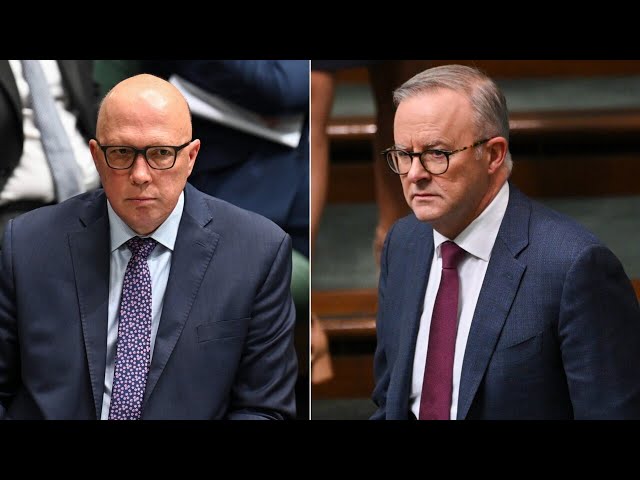
The budget bottom line would be worse in the first two years of a Dutton government than under Labor, according to the Coalition’s own costings, despite sweeping cuts to the public service to fund the party’s election promises.
The costings, released two days before the federal election, show a deterioration of $7.9 billion over the next two financial years, compared to Treasury’s pre-election figures.
The Coalition claims a $21.8 billion improvement in the following two years, most of that because of a $17.2 billion cut, which the party claims will be achieved by sacking 41,000 Canberra-based public servants, sparing frontline and security workers.
The Coalition’s permanent migration cuts will also cost the budget $4.2 billion, but it will claw roughly this amount back by increasing migrant application fees.
Shadow Treasurer Angus Taylor said the Coalition had decided to “balance improvement in the government budget with balancing improvement in household budgets” my offering voters short-term cost of living handouts.
“That’s in contrast to Labor,” he said.
“This is a Labor government who loves to spend more, and that means they have to tax more. There is a better way we can get this country back on track.”
No timeline for return to surplus
Mr Taylor could not say when the Coalition would return the budget to surplus, saying only that it would be “faster than Labor”.
“If we get faster growth and stronger productivity, which is our goal … that improvement will improve the budget position faster,” he said.
He suggested the Coalition could have an even better budget bottom line if it managed to improve productivity above the levels of the last decade, but said that aspiration was not reflected in the costings.
No voluntary redundancies needed for public service cuts, Hume says
Labor and independent senator David Pocock say that the public service cuts would mean either the closure of entire departments or a massive spend on private consultants, arguing there were not even 41,000 public servants in all of Canberra meeting the Coalition’s description.
Shadow finance spokesperson Hume said that there were and that the Coalition had worked closely” with the independent Parliamentary Budget Office, which prepares election costings, and believed it could achieve a 41,000-person reduction with “a hiring freeze and natural attrition”.
She said the Coalition was “not expecting voluntary redundancies”, though Coalition frontbenchers have previously said they were on the table.
She added that “about 5,000 or so” of the jobs were “people that haven’t actually been hired yet”, while reiterating the cuts would be “focused on Canberra”.
$118 billion cost of nuclear plan parked ‘off budget’
The Coalition’s nuclear power plan would be funded by “equity investments”, a form of government spending which is not counted towards the common measure of the budget bottom line because it can theoretically be recovered at some future date.
The costings suggest the Coalition would provide $36.4 billion in equity investments between now and 2035, eventually rising to $118.2 billion. The Coalition does not propose to eventually sell the power plants and recover its equity injection.
No new detail on migration cuts, but Coalition assumes they will hit economic growth
The Coalition did not offer any new details about how its 25 per cent cut to permanent migration would be achieved, beyond cuts to the humanitarian program which it had already outlined.
Frontbenchers have previously said this would be worked out in government, and would likely need to come from some combination including cuts to skilled worker visas and family visas.
The $4.2 billion cost the Coalition has assumed from these cuts is the flow-on effect of lower economic growth, forgoing the tax that would have been paid by migrants on the income they earned. Conversely, slashing the humanitarian intake would save $1.5 billion.
Mr Taylor said he was comfortable with the economic cost of cutting migration, a function of reducing economic growth and forgoing the tax cuts, accusing Labor of trying “to grow the economy through population growth, not through productivity growth”.
Treasurer Jim Chalmers said the costings showed “higher taxes [and] savage cuts”.
“We know that there will be more to come if Peter Dutton wins the election on Saturday,” he said.
“These costings released this afternoon by the Coalition are a joke. They are a shame. They are a costings con job.”
Money raised through vaping tax, repealing Labor policies
A Dutton government would also raise $3.6 billion by regulating and taxing vaping, and save over $15 billion by repealing Labor policies including EV tax concessions, HECS debt relief, infrastructure projects, vehicle efficiency standards, the housing future fund, the proposed tax on unrealised capital gains, and mining tax credits.
The vaping policy, announced in June of last year, would require retailers to get a licence to sell vapes and impose safety and quality requirements, an alternative to what the Coalition calls Labor’s “prohibition” approach, which it says fuels the black market.
Mr Taylor told the ABC’s Afternoon Briefing the tax would be $1 per millilitre.
He said Labor had “failed on vapes”.
“It has been a complete and utter failure, and what we are saying … [is] that we would go with a regulated model … and make sure it is a sector that is doing the right thing, is regulated and will be taxed,” he said.
Mr Chalmers said Labor did not support the Coalition’s vaping policy.
“We want to get the kids off vapes, they want to tax people for using vapes,” he said.
The Coalition would also cut $813.5 million from foreign aid, excluding aid to the Pacific, Indonesia and Timor Leste.
Much of what it has saved is spent on its own commitments, headlined by $12.7 billion in new defence spending, $2.4 billion on housing infrastructure, and $1.8 billion to make the small business instant asset tax write-off permanent.
The Coalition’s cost of living offers — a temporary fuel excise discount and a one-off tax offset — cost roughly the same as the Labor tax cuts which the Coalition would unwind.
Senator Hume said the costings were a “very clear, responsible, credible economic plan to restore our nation’s finances” but added things would not be “easy”.
“We are not pretending for a second that this will be easy,” she said.
“Good government never is, but it is the right thing to do.”




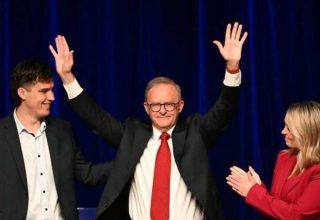
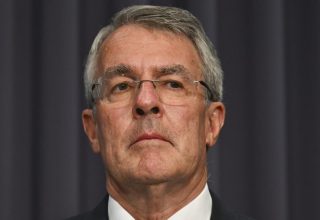
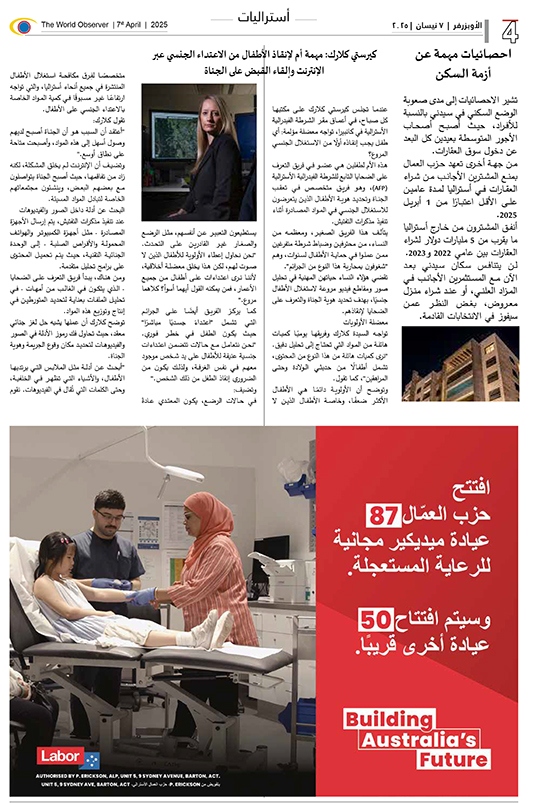
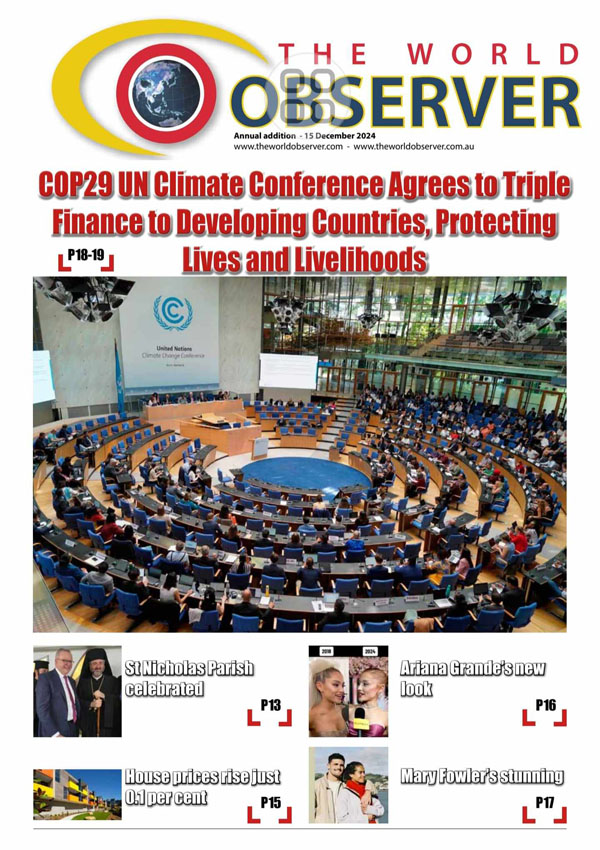
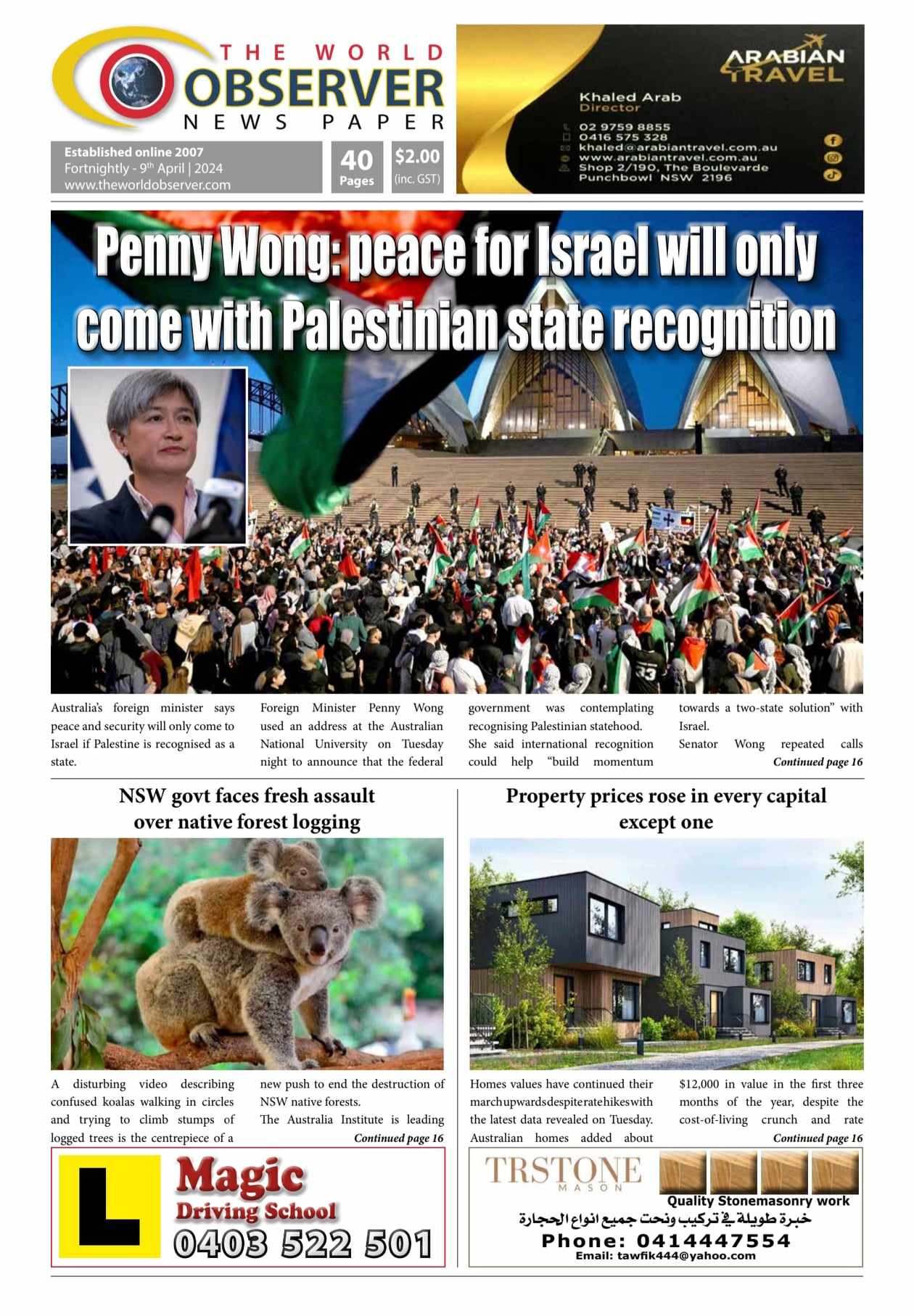

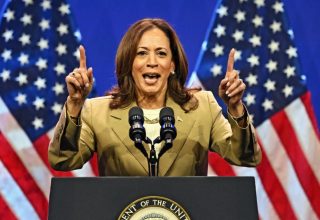



























 The World Observer Media produces a daily online newspaper, a daily Arabic online newspaper and a monthly printed Arabic/English magazine and a weekly printed Arabic/English newspaper.
The World Observer Media’s mission is to entertain and educate all generation from the Ethnic Communities in Australia, who are interested in local, national and foreign information.
The World Observer Media produces a daily online newspaper, a daily Arabic online newspaper and a monthly printed Arabic/English magazine and a weekly printed Arabic/English newspaper.
The World Observer Media’s mission is to entertain and educate all generation from the Ethnic Communities in Australia, who are interested in local, national and foreign information. 


